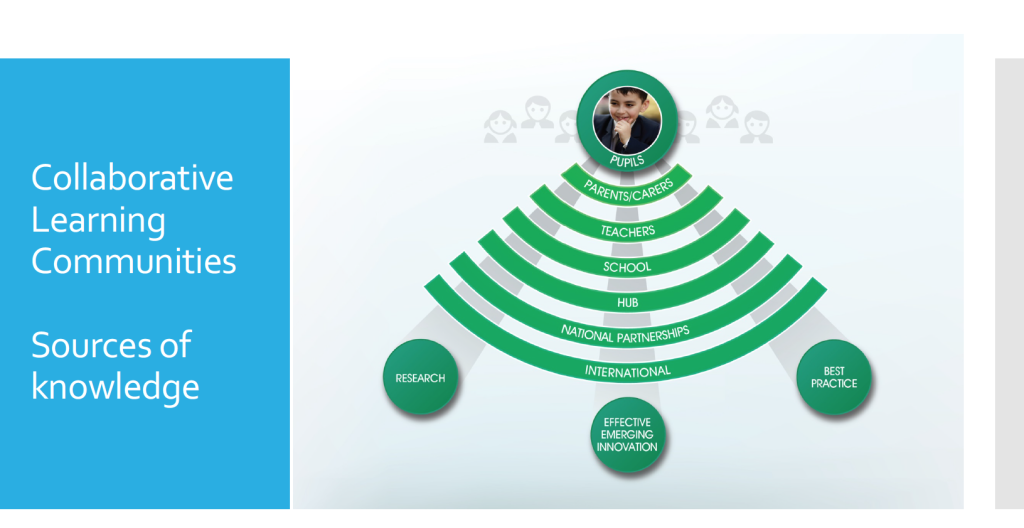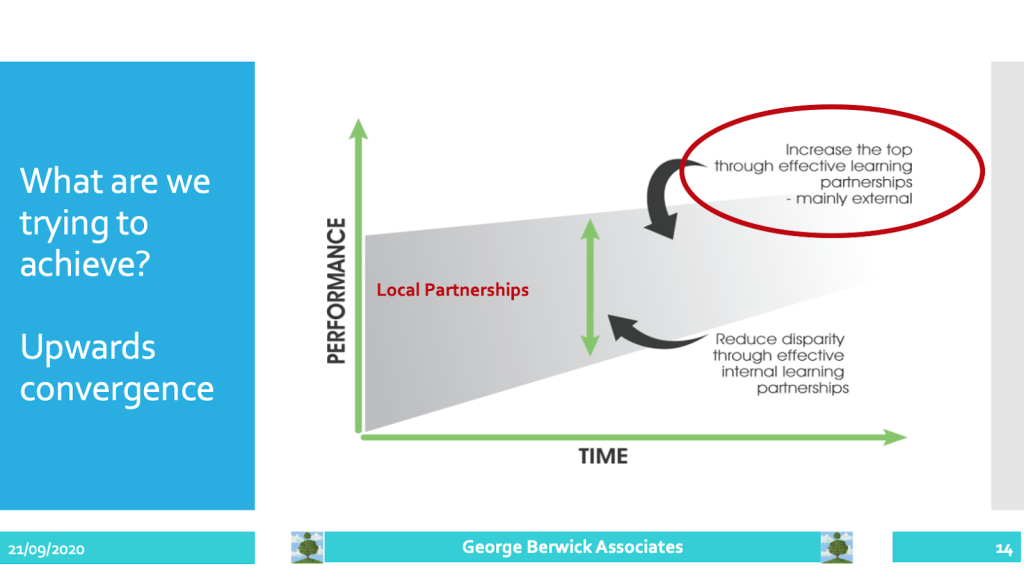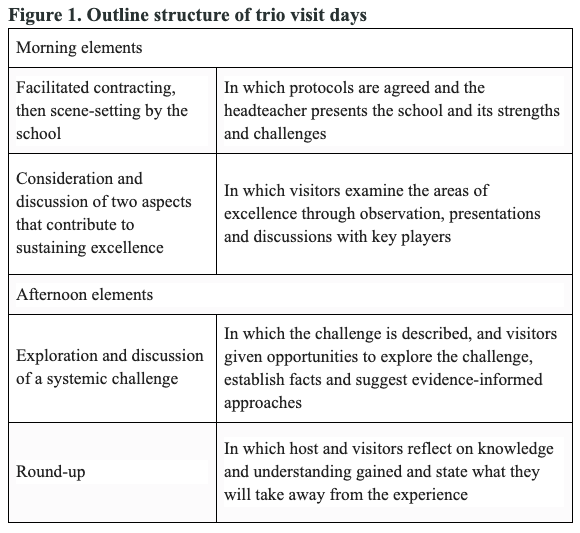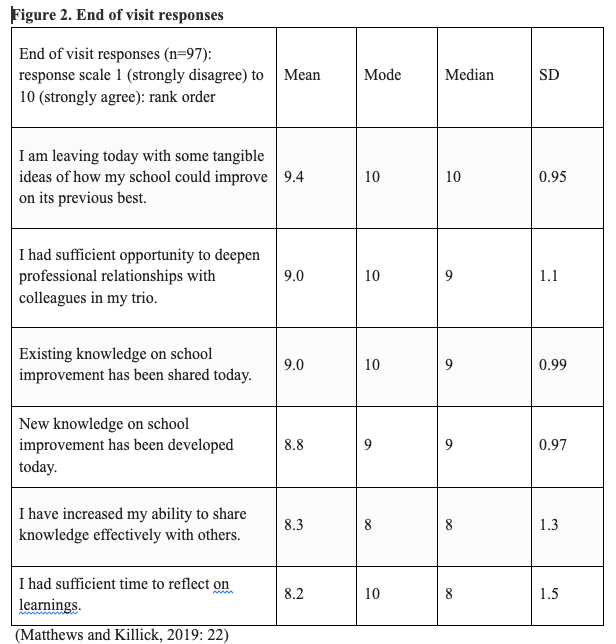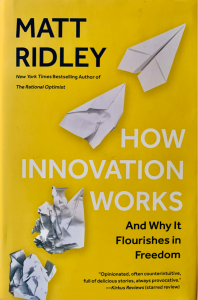Think Pieces
How upwards convergence is good for all
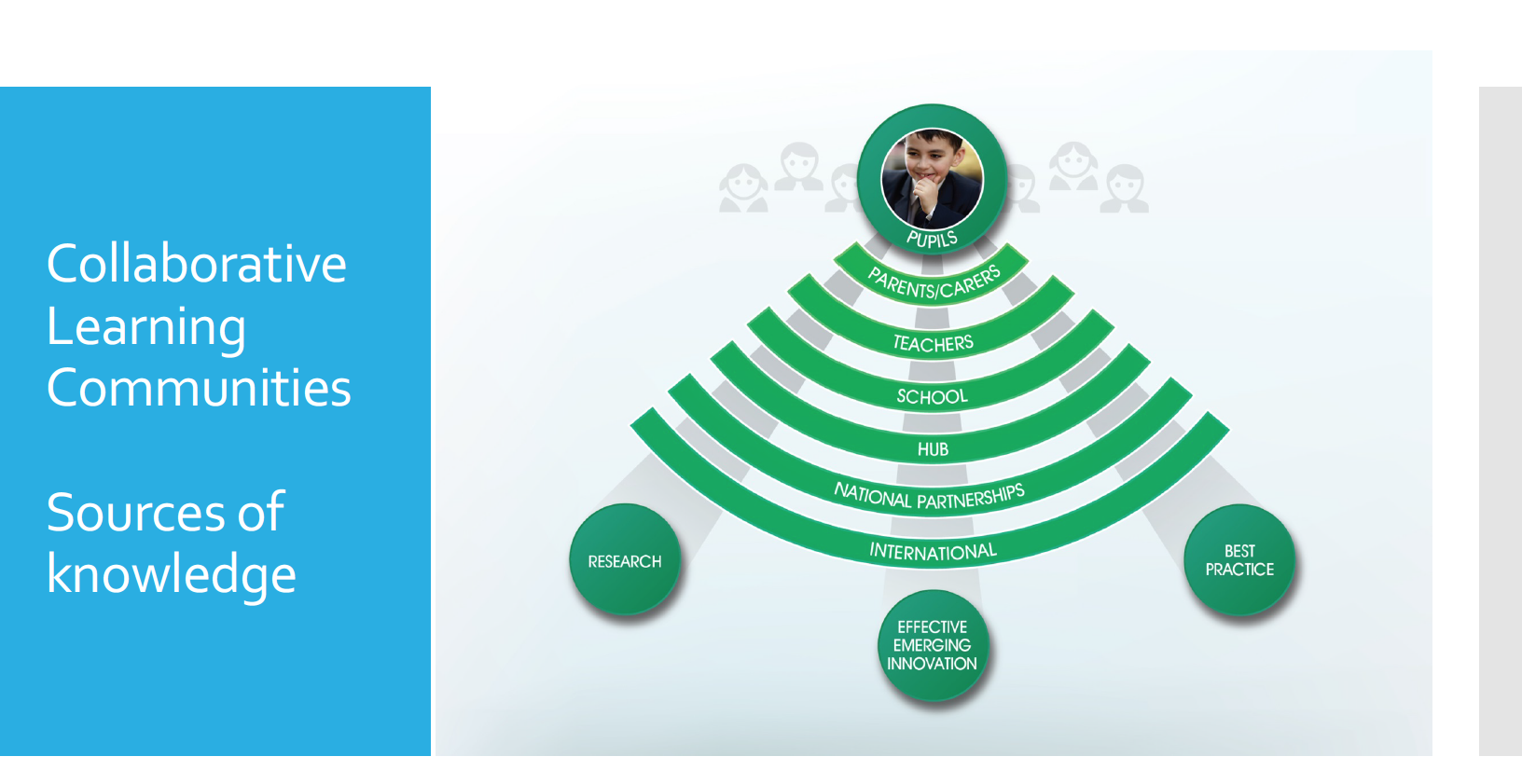
OLEVI’s Chair, Professor Sir George Berwick, shares his thoughts around how upwards convergence is good for all. Shared knowledge is a powerful tool which can help the continual improvement of schools’ performance, as we have discovered with Challenge Partners’ Growing The Top Programme.
On the 28 January 2020 Professor Peter Mathews in his blog titled. The power of pop-up groups, described how high performing schools were using pop-up networks to develop and transfer knowledge. He was referring to the research he was then involved with into a programme devised and run by Challenge Partners called ‘Growing the top’ (GTT). This research, which he undertook with Roisin Killick of Challenge Partners, has recently been published by Teaching Times. (Peter Mathews and Roisin Killick, Can outstanding schools ever bottle their success. 2020).
The paper describes how high performing secondary schools in Challenge Partners have been engaged in the Growing the Top programme. This initiative has emerged from the Partnership’s focus upon how knowledge derived from three sources: relevant research, best practice and emerging effective innovation, can be captured, shared and developed further among high-performing schools.
The name of the programme is derived from the upward convergence model of school improvement. The aim of this approach, as I am sure regular readers of this blog will not need reminding, is to continually improve the performance of schools by reducing the disparity in performance between staff within the school whilst increasing the performance of those at the top – hence growing the top. The growth in performance is achieved by:
- Accessing new knowledge from best practice, relevant research and emerging effective innovation, often through networking.
- Creating new knowledge by undertaking research or through collaborative problem solving, especially within their own context.
- Increasing the consistency of their practice by locking in the learning of what already works within their school(s).
Participants in the programme
A total of 21schools participated in the programme and they allowed recordings of their input to be used in the report. The programme was led by Dr Josie Valentine OBE, CEO of the Danes Educational Trust, was co-delivered by Liz Smissen and supported by Dame Sue John, Executive Director of Challenge Partners.
What they did
The programme was designed “to create a mechanism by which stand-out schools could both share aspects of the practice that contributed to their effectiveness and work together to find solutions to an ongoing challenge in each of the schools.”
The schools were grouped into trios which represent all aspects of the diversity of the network. Each school acted as a host for the other two and they selected one aspect of their work to demonstrate excellence – sharing new knowledge via networking – and a challenge which they wished to collaboratively resolve with the other schools in the trio – creating new knowledge by collaborative problem solving. They spent a day visiting each other’s school, with the morning spent sharing excellent practice and the afternoon collaboratively problem solving. (see figure 1)
Critical to the success of this activity is the role of a trained expert facilitator. As with all good facilitation, ensuring the process is open, keeping the trio on task, on time and resolving issues are key roles. In doing this they also ensure that there is a high degree of consistency across the trios.
The outcomes
Their evaluation demonstrated that the Growing the Top programme is an effective vehicle for developing professional relationships, moving knowledge around and sharing expertise which all supported schools to leave the programme with tangible ideas on improving on their previous best (see figure 2).
The findings
Their findings confirmed an important aspect of this approach to school improvement, which is that while high-performing schools operate in considerably different contexts:
- They have a common set of motivation and values – a thrust for continually striving to improve the education they provide for all of their students,
- The fundamental problems they address and the process they use to resolve them are often the process.
- They operate in an open, sharing and reflective environment and they relish the opportunity to collaborate with schools which embrace a similar approach.
These characteristics explain why the collaborative learning communities they form have a global reach.
————————————————————————————————————
In a broader sense it goes to support Matt Ridley’s assertion that innovation is gradual and that over time, ownership is difficult to assert. We are uncertain where the concept of upwards convergence came from. It was first mentioned in our work back in 2003 and was used extensively in the London Challenge to design its work. Now with this new programme and its accompanying research, the concept has become more refined and used by a new generation of school leaders. In a way, concepts/innovations and their ownership are like schools and their headteachers. A school is often there for generations, ownership of it by a headteacher, however personal it might seem to them at the time, is only temporary.
Points for reflection
- Do you have a systematic approach to growing the top of your organisation?
- Does the concept of popup networks make sense to you?
- If so, have you any examples of using them effectively?
- If not, could they assist with knowledge creation?
- Olevi places considerable emphasis on developing facilitation skills. How developed are yours and your schools?
Take care and stay safe
George, OLEVI Chair
PS: If you wish to know more about this programme, you can access it through the Challenge Partners website.

